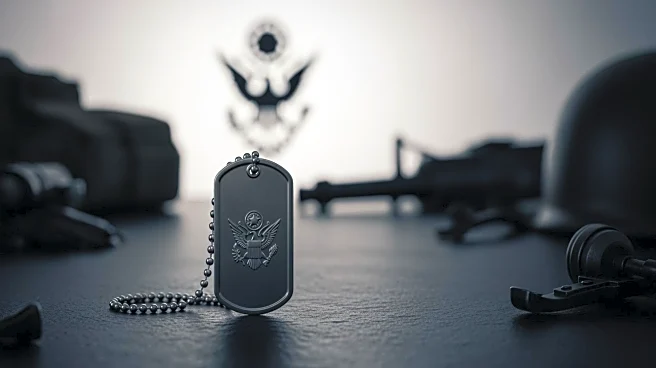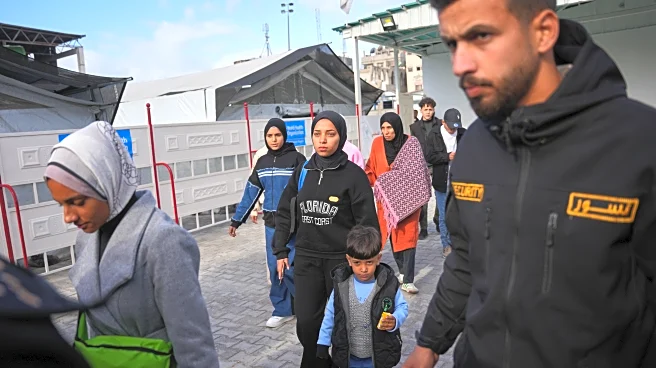What's Happening?
The Israeli military has announced that one of the bodies handed over by Hamas as part of a ceasefire agreement is not that of a hostage, adding tension to the fragile truce. The ceasefire, brokered by the U.S., called for the return of all hostages,
both living and deceased, by a deadline that expired on Monday. Hamas has handed over four bodies, but Israel is still awaiting the return of 28 deceased hostages. The misidentification of a body has complicated the situation, with Israel demanding a full accounting of all deceased hostages. Meanwhile, the Gaza Health Ministry reported receiving 45 bodies of Palestinians from Israel, some showing signs of mistreatment.
Why It's Important?
The misidentification of a body in the hostage exchange highlights the delicate nature of the ceasefire between Israel and Hamas. The situation underscores the challenges in implementing agreements in conflict zones, where trust and verification are critical. The return of hostages and deceased individuals is a sensitive issue that affects diplomatic relations and humanitarian efforts. The ceasefire's success is crucial for stabilizing the region and preventing further escalation. The involvement of international bodies like the Red Cross and the UN emphasizes the global interest in resolving the conflict and ensuring humanitarian aid reaches affected populations.
What's Next?
Israel is expected to continue demanding the return of all hostages' bodies, and further exchanges are anticipated. The situation remains tense, with potential repercussions if the ceasefire terms are not fully met. The international community, including the UN, is likely to continue monitoring the situation closely, urging both sides to adhere to the agreement. The ongoing negotiations and exchanges will be critical in determining the ceasefire's longevity and effectiveness in maintaining peace.
Beyond the Headlines
The ethical implications of hostage exchanges and the treatment of bodies in conflict zones raise questions about human rights and international law. The signs of mistreatment on returned bodies highlight the need for accountability and transparency in conflict resolution processes. The role of forensic medicine in identifying bodies and providing closure to families is crucial, yet complicated by restrictions on resources and equipment in Gaza.















